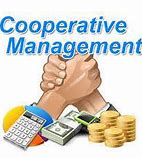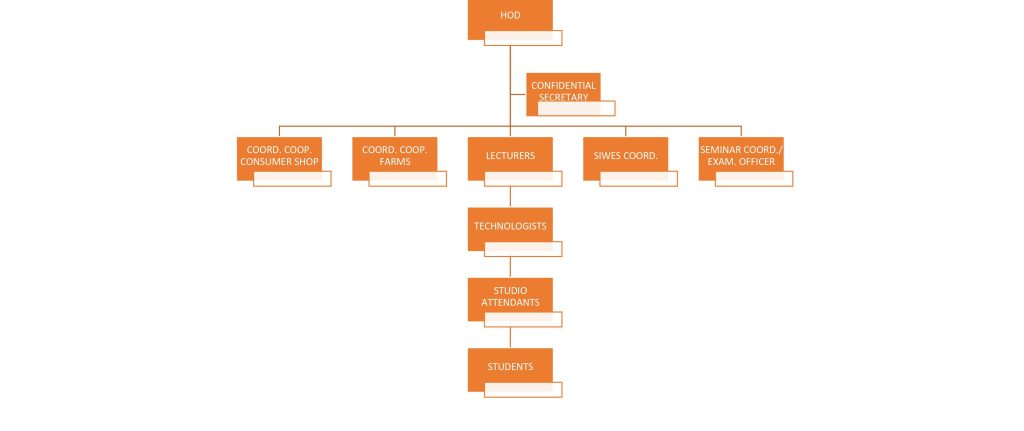Cooperative Economics & Management



About Us
The Department of Cooperative Economics and Management is one of the Departments in the School of Business and Management Studies. The Department got National Board for Technical Education (NBTE) approval through resources inspection/ accreditation in 2019 and commenced academic activities in February 2020 with the following staff members Mr. S. L. Adebisi as the pioneer Head of Department, Mr. A. O. Adekunle, and Mr. M. O. Ibrahim. 35 applicants out of the many who sought admission were admitted at National Diploma level as the first set of students for the 2019/2020 Academic Session. The National Diploma (ND) Programme is run for a minimum period of four Semesters (2 academic sessions) on a full-time/daily part-time basis.
Organogram

Programme Objective
The general objective of the Department of Cooperative Economics and Management is to embark on cooperative education and training to turn out an adequate number of personnel to efficiently manage cooperative societies and related organizations in the country and beyond. The course provides an understanding of cooperatives as a model of organization that creates both social and economic value. The Department also trains students on co-management and how to achieve more effective and equitable systems of resource management. It helps to mobilize human skills, processes, and technical and financial resources. Cooperative economics and management is closely allied with collaborative management, participatory management, community management, joint management, and stakeholder management.
General Information
Every student in the department of Cooperative Economics and Management is expected to acclimatize himself/herself to the details in the departmental handbook. Students are expected to study the handbook and comply with all regulations therein for proper guidance and conduct. Click here to view the handbook.
ADMISSION REQUIREMENTS
NATIONAL DIPLOMA IN COOPERATIVE ECONOMICS AND MANAGEMENT
Applicant must possess at least five credit passes in SSCE/NECO/GCE/NABTEB O’ level. The five (5) subjects must include English Language, Mathematics, Physics, and any other three subjects from the following: Agricultural Science/Biology, Economics, Business Methods, Principles of Accounts, Literature in English, Commerce, History, Statistics, Geography, Government obtained at not more than two sittings or a credit pass in N.B.T.E. recognized pre National Diploma Examination.
HIGHER NATIONAL DIPLOMA IN COOPERATIVE ECONOMICS AND MANAGEMENT
In addition to the requirements for National Diploma as stated above, candidates seeking Higher National Diploma admission must possess a good National Diploma certificate from a recognized polytechnic with a minimum of lower credit and evidence of completion of one year of industrial training.
CAREER OPPORTUNITIES
Graduates of this program can seek employment with government agencies, Bank of Agriculture, such as public works, parks and recreation, housing, transportation or numerous others at the local, state or federal level. Depending on the concentration of study, they can also find opportunities in education, healthcare or law enforcement. Also, the course provides an excellent training for further studies leading to post-graduate studies like MBA or MA/MSC and PHD degree programmes in Finance Economics, Business Management, Agric. Economics, Agric. Extension and Management, Research Assignment, etc.
Opportunity industries are:
- Media and Communications
- Consulting
- Financial and Investment Institutions
- Manufacturing/ Production
- Hospitality/ Tourism
- NGOs/ Agencies and so many more industries
